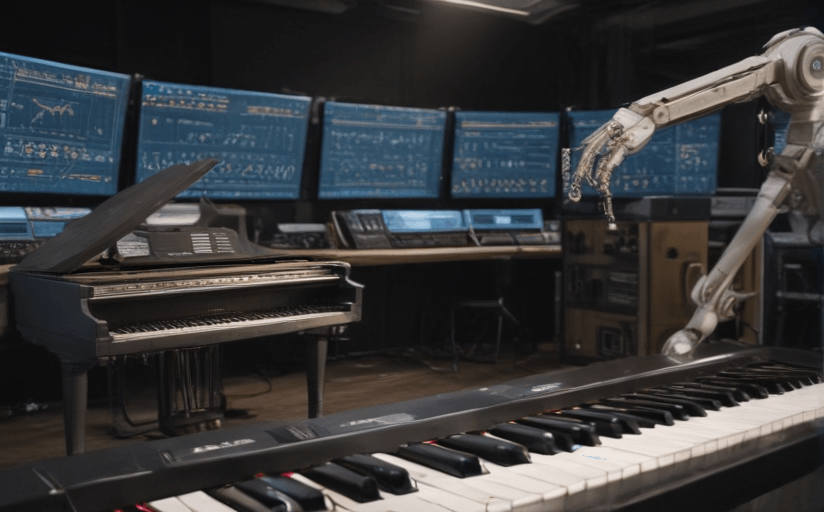Exploring the Impacts of AI in the Music and Entertainment Industry
Artificial Intelligence (AI) has become a major disrupting force across various sectors and the music and entertainment industry is no exception. The incorporation of AI in these sectors has significantly transformed the landscape, influencing various aspects from music composition and recording to distribution and consumption. Furthermore, AI has also revolutionized content creation, delivery and reception in the entertainment industry.
AI in Music Creation and Distribution
AI has truly redefined music creation and composition, creating new opportunities and challenges for creators and artists. AI algorithms now have the capacity to generate new melodies or harmonies based on algorithmic compositions. Tools like AIVA and Amper Music are able to compose original pieces of music, changing established notions of creativity and production.
The recording process has also been shaped by AI. By analyzing the quality of sound and adjusting pitches and tones automatically, AI systems like LANDR can now master tracks without any human intervention. Furthermore, AI has transformed the distribution and consumption patterns. With AI-based recommendation systems, platforms like Spotify and Apple Music can direct listeners to curated playlists based on their preferences.
AI Revolutionizing the Entertainment Industry
In the broader entertainment industry, AI has revolutionized content creation, delivery and reception. AI algorithms are being used to script and storyboard films, transforming traditional filmmaking processes. Platforms like Netflix use AI for content recommendation, delivery enhancement and improving customer experience.
AI’s foray into the gaming industry is also noteworthy; machine learning algorithms are used to adapt in-game experiences according to user behavior. Thus, AI has become pivotal in shaping user engagement & experiences in the entertainment industry.
Opportunities and Future Prospects
The incorporation of AI into these industries presents exciting opportunities for the future. AI’s predictive analysis can help anticipate consumer trends, enabling proactive content creation. Democratization of content creation and distribution through AI can level the playing field, encouraging creativity and diversity.
Challenges and Concerns
However, these advancements come with their own set of challenges and concerns. Ethical and copyright issues loom large as AI-powered music and content create blurred lines of authorship. The risk of a 'filter bubble', where AI-recommendation systems stifle discovery of diverse content, is another challenge. Furthermore, there is concern over job displacement due to automation.
In conclusion, AI’s incorporation into the music and entertainment industry has indeed disrupted conventional practices, but also opened doors for unprecedented advancements. How we navigate these developments will shape the future of these industries.

















Comments
Leave a Comment